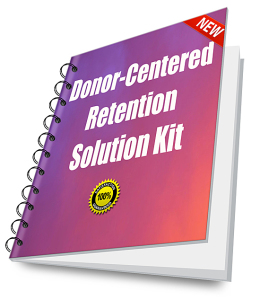 Confession: This is something I struggled with in my 30 years as a manager.
Confession: This is something I struggled with in my 30 years as a manager.
I wanted to reward folks, but I tended to focus on things like money rather than gratitude, praise and recognition. And positive reinforcement didn’t come to me as naturally as pointing out weaknesses. I had both a boss (and a mother) who role modelled this for me.
This same critical boss also told me, whenever I wanted to give someone a raise, money didn’t motivate people. All sorts of other things mattered more, including work environment.
At the time, I didn’t really believe this. I was constantly advocating for well-deserved raises because I thought it was the best gift I had to offer. And, by golly, it seemed like the right and fair thing to do! She told me resources were limited, and the satisfaction from a raise is fleeting, compared with things like greater authority, autonomy, praise and recognition.
You know what? She was right. Not about leaning into criticism, but about what is most meaningful to employees in a workplace.
What Matters Most?
I found, as much as the people who worked for me enjoyed a good raise, they complained a lot more about lack of advancement opportunity, responsibility without authority, a top-down infrastructure, lack of job fit, unrealistically high expectations, shortage of support and an overall stressful work environment.
If money is really bad, of course, it will get in the way. However, it’s worth noting money is only fourth among the top five reasons people cite for leaving a job. In fact, the preponderance of research into the value of money as a motivator notes it is a motivator only up to a certain point; once folks reach that level, more money has a negligible impact on their satisfaction.
[Background: I was fortunate during my career not to work at places where folks were expected to buy into the “starvation cycle” mentality and live below minimum wage. Where I worked, people generally were fairly and well-compensated. Sure, they’d likely tell you they wanted more money. But this was not the reason they left.]
“In a nutshell: money does not buy engagement.”
— Tomas Chamorro-Premuzic, author, Why Do So Many Incompetent Men Become Leaders? (and How to Fix It)
Employee engagement is a product of overall work environment (culture) and specific management support (feedback, praise and recognition).
Begin with an Engaging Work Environment
A huge part of what employees will describe as “work environment” has to do with meaningful engagement, or lack thereof. And there are two ways to promote this engagement:
- Develop a broad, organizational culture of philanthropy [See here, here, here and here.]
- Develop a feedback system incorporating authentic praise, recognition and focus on strengths, not weaknesses.
I talk a lot about the former. Today I’d like to hone in on the latter.
(1) Because… for engagement to stick, the two types must go hand-in-hand.
In fact, research reveals
Details
 For good things once a year is not enough. Why do so many of us only eat turkey once a year? Or pumpkin pie? I’ve no idea! It’s surely not rational. These are special foods we value and take great delight in. Yet we get into a bad habit of thinking on auto pilot. If it’s not Thanksgiving, the idea of roasting a turkey or making cranberry sauce doesn’t even enter most or our heads. And egg nog, hot mulled cider, panettone and stollen are mostly Christmas things. And then there are the once-a-year only potato latkes. Why are we missing out on an opportunity for greater joy and satisfaction?
For good things once a year is not enough. Why do so many of us only eat turkey once a year? Or pumpkin pie? I’ve no idea! It’s surely not rational. These are special foods we value and take great delight in. Yet we get into a bad habit of thinking on auto pilot. If it’s not Thanksgiving, the idea of roasting a turkey or making cranberry sauce doesn’t even enter most or our heads. And egg nog, hot mulled cider, panettone and stollen are mostly Christmas things. And then there are the once-a-year only potato latkes. Why are we missing out on an opportunity for greater joy and satisfaction?


 Confession: This is something I struggled with in my 30 years as a manager.
Confession: This is something I struggled with in my 30 years as a manager.



